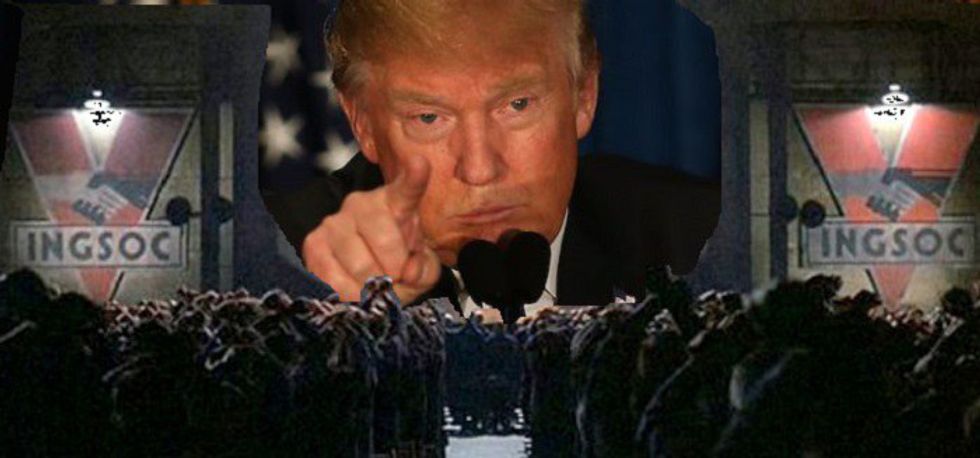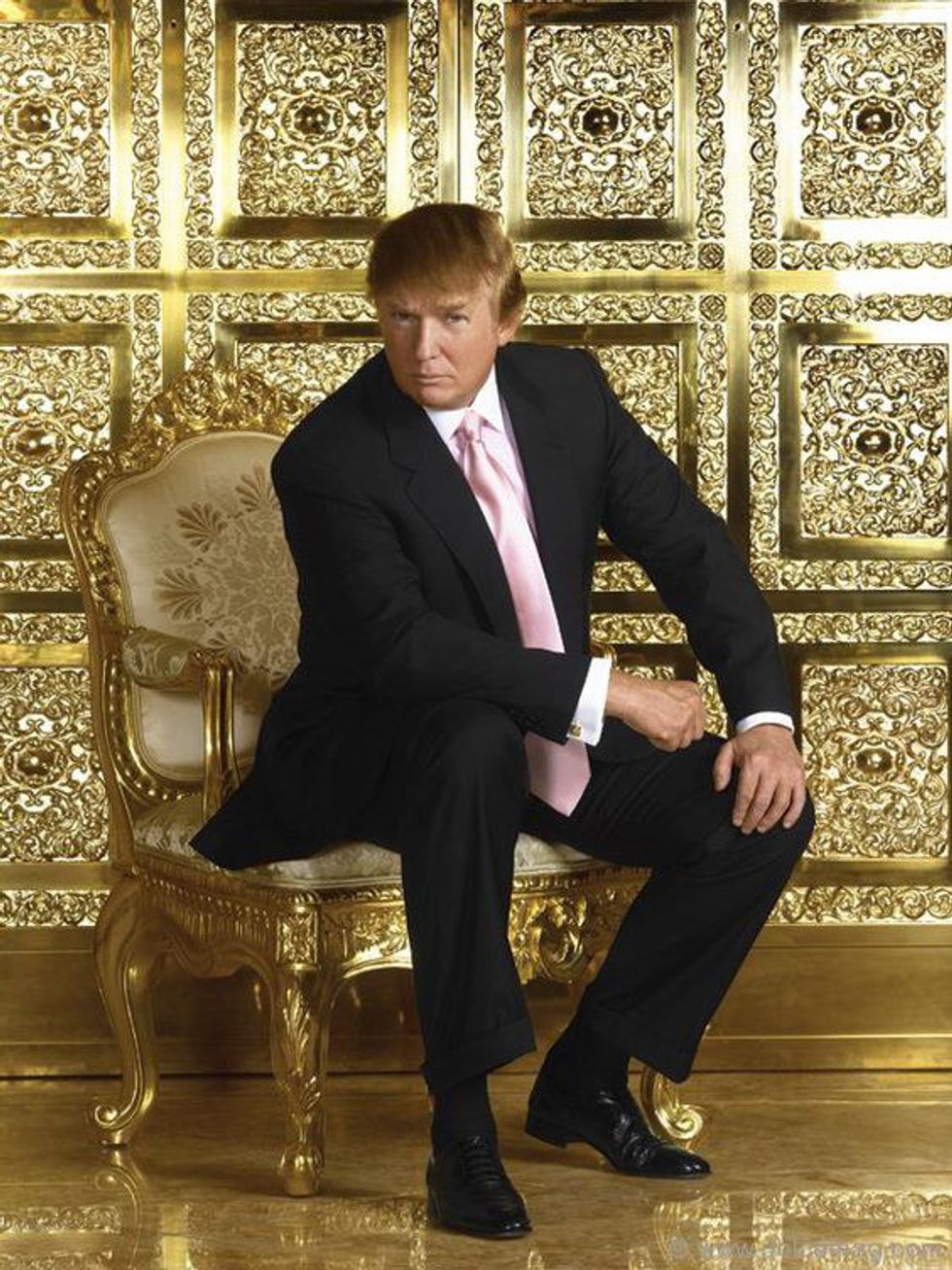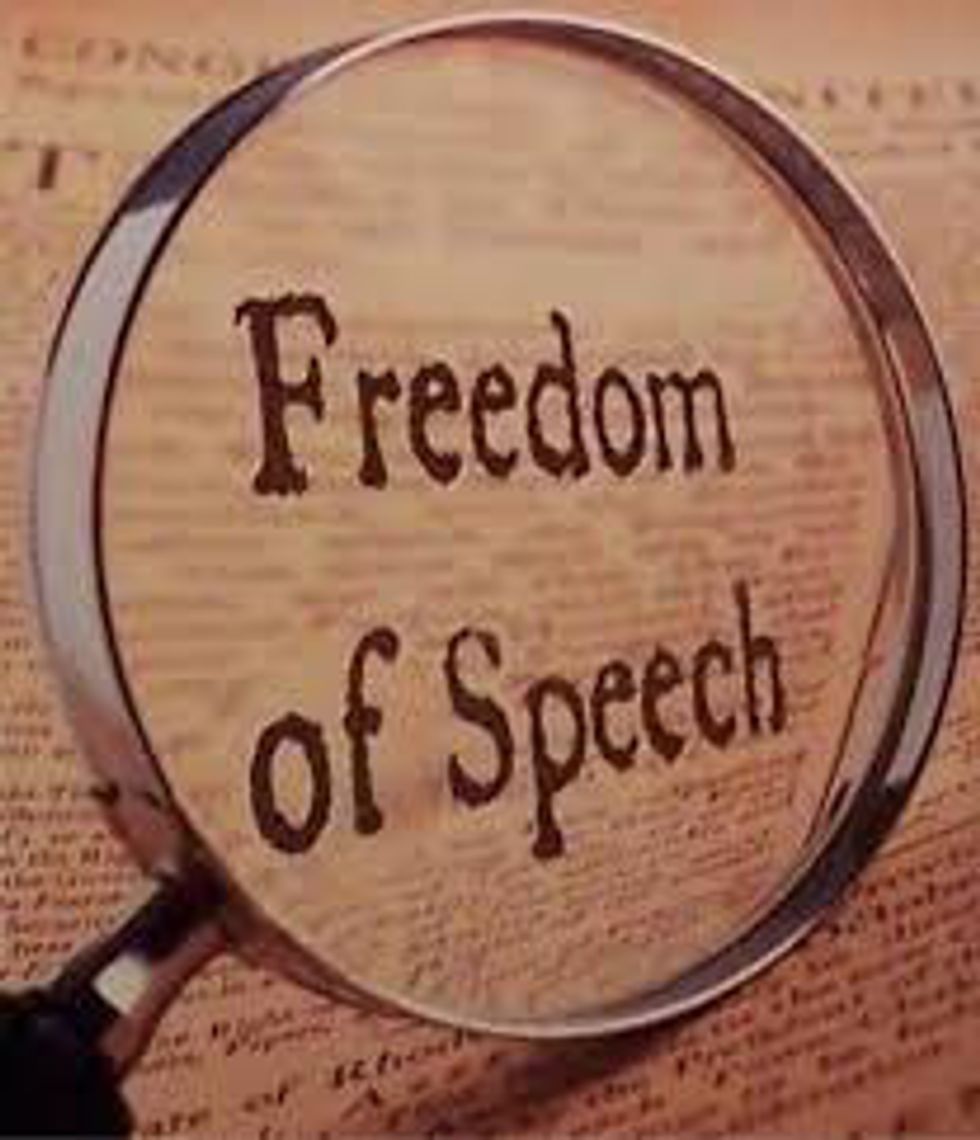Totalitarianism is pretty fun --or at least to study. One can study old notorious governments that implemented off-putting, sometimes brilliant, strategies and tactics to control their people. We can also study present day governments like North Korea (that restrict information and civil rights), or people/parties that may have tyrannical or imperious agendas. We can even analyze theoretical totalitarian systems, which many writers and political scientists have attempted. The most famous hypothetical totalitarian government is “The Party”, led by Big Brother, in George Orwell’s "1984". Orwell creates the perfect oppressive system that can never be destroyed. They control everything about their people: what they do, what they learn, and even what they think. The moral of the book is basically a warning, written in 1949, that if society continued down the same path, by the year 1984 we would be forever stuck in this indestructible tyranny. Now to bring back to the other two fun areas of study, past and present totalitarianism, people like to call Donald Trump, Hitler. There are similarities between how they feed off the people’s hatred and nativism, and how they planned to in someway increase their control over the people (for example Trump supports the use of stop and frisk and heavy immigrant regulation). I am obviously not saying that Trump is Hitler, I am just relaying the thoughts of many citizens who fear the worst. What this essay is going to do is explain the parallels and polarities of Trump’s America and the indestructible totalitarian government in "1984", but once all facts are presented, I will convince you that Donald Trump can never become the society Orwell warns us against.
The strongest case for the similarity between Trump’s politics and previous totalitarian governments, is the use of hatred. Hitler blamed the Jews for Germany's problems, Trump blames Muslims and immigrants (he has even gone as far as proposing special IDs for all Muslims, very similar to Hitler’s approach to the Jews back in the 1930’s). The result of both is the same: a primal instinct of hatred and nationalism. Both of them fed off of people’s fear and hatred, and used it to gain support as they became idols that would save the people--Trump being elected president and Hitler rising to the top of his party. Big Brother is no exception; in chapter two we experience the "Two Minutes Hate": an exercise of intense hatred to raise nationalism. They show a video of a notorious traitor, Goldstein, that provokes the hatred of everyone in the office, “In its second minute the Hate rose to a frenzy. People were leaping up and down in their places and shouting at the tops of their voices in an effort to drown the maddening bleating voice that came from the screen” (Orwell, 14). At the end of the exercise they have Goldstein, as well as foreign enemy armies that debut in the background, begin to fade away, and then Big Brother appears and the people begin chanting for him: “B-B!... B-B!...B-B!” (Orwell, 16). Big Brother, much like how Trump has, was able to conjure relentless support by unleashing the people’s angers and fears and portraying himself as the solution. There a recognizable parallel between Hitler, Big Brother, and Trump’s use of nationalism and hatred to rise to power.
Trump isn’t exactly what Orwell prescribed though. Donald Trump has a net worth is 3.7 billion dollars, is financially involved with over 530 entities, and considers himself to be a successful businessman. In "1984", Big Brother and his party rose to power in a revolution against “the capitalists.” In chapter seven, book one, the main character looks at a history book that describes life pre-revolution. It describes the rich as “fat, ugly men with wicked faces,” and implies that the revolution was to stop them from abusing the people: “The capitalists owned everything in the world, and everyone else was their slave” (Orwell, 73). If Trump is this capitalist, which he undoubtedly is, then the revolution can’t happen like Orwell predicted: it would be the exact opposite. In fact many of his stated objectives are for less government intervention, at least economically, which would starkly contrast to the all controlling government of "1984".
A couple years prior to writing "1984", Orwell wrote two letters, that are now in "George Orwell: A life in Letters", detailing the thesis of the book. The book acts out all the worst things Orwell warns us of in the letters. At the end he writes, “I think, and have thought ever since the war [WW2] began, in 1936 or thereabouts, that our cause is the better, but we have to keep on making it the better, which involves constant criticism,” which means that criticism, and freedom of speech, is the key to saving us from the grim future he predicts. This is why Trump’s America can never become Orwell’s totalitarian government. The book is called “1984” because it is supposed to take place in the year 1984, but the book was written in 1949. It would have been very difficult for him to predict the vast amounts of information we get on a daily basis in the 2016. Although many sources might be biased or illegitimate, there is still a relentless barrage of information and opinions, and that means that everyone hears the criticism of Donald Trump. Everyone is aware of his scandals, at all times, and if/when a large enough scandal that could weaken his support happens, everyone will know about it. It is true that so far almost all his scandals have bounced off him, but I believe that there is a certain line that once crossed, his supporters will not be able to follow him past. When there was the leaked the Access Hollywood recording, Trump did lose some support, right after it happened, Time released an article saying, “nearly 20% of the 331 current Republican governors, Senators and House members have renounced their party’s nominee,” and “More than a third of female Republican lawmakers have renounced the nominee.” The media and freedom of speech is powerful, and it is the reason Trump can never become what Orwell feared.
Donald Trump’s presidency’s will be interesting to watch, as he has already made so much history: a record breaking dislike rate, first president not to have any political or military experience, and first president to lose the popular vote by 2 million. Many fear the worst when it comes to his presidency, and with some validation, but there are also reasons that he is the opposite of what many fear. Yes, he has mastered the art of hatred and nationalism, but in many ways his character is the opposite of what Orwell has warned us against. In the end, though, you have nothing to fear because we have the power to stop him. In chapter seven (book one), the main character, who has been controlled almost his entire life Big Brother and “the Party,” writes in his contraband secret diary that “Freedom is the freedom to say that two and two make four. If that is granted, all else follows” (Orwell, 81). If the government can’t control the basic rules of the universe, or at least our perception of them, then all else follows. Donald Trump will never be allowed to convince us two plus two is not four, because we will always be able to hear a sources that says otherwise. If Trump cannot control what we think and our ability to criticize him, then according to Orwell, we will be able to stay off the path of totalitarianism.




























